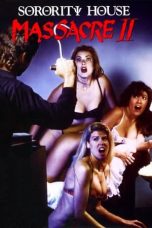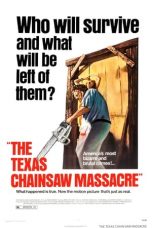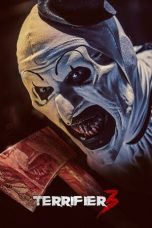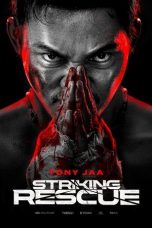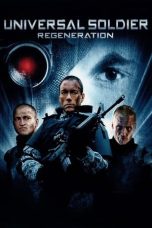- Source: Bijon Setu massacre
The Bijon Setu massacre (Bengali: বিজন সেতু হত্যাকাণ্ড) was the killing and burning of 16 sadhus and a sadhvi of Ananda Marga, at Bijon Setu, West Bengal, India, on 30 April 1982. Although the attacks were carried out in broad daylight, no arrests were ever made. After repeated calls for a formal judicial investigation, a single-member judicial commission was set up in 2012 to investigate the killings.
Killings
On the morning of 30 April 1982, 17 Ananda Marga sannyasa—16 sadhus and 1 sadhvi—were dragged out of taxis en route to an educational conference at the Ananda Marga's headquarters in Tiljala, Kolkata. They were beaten to death and simultaneously set on fire in three locations. It was reported that the murders took place in broad daylight and were witnessed by thousands of people.
Initial press reports and reactions
A week after the incident, The Statesman Weekly, a leading Calcutta newspaper in 1982, reported that "[s]eventeen Ananda Margis, two of them women, were killed on April 30 morning by frenzied mobs at three places in South Calcutta on the suspicion that they were child-lifters".
The reporting did not include any compassion for the victims or their families, a tone that foreshadowed the reactions of both the government and the media. Similar unsympathetic reporting appeared in the 5 May edition of the Statesman and editions of Sunday and India Today. The Minister of State for Home Affairs said the police reaction could have been improved but then went on to reassure members of Parliament that "the Government was watching the activities of the Marg [Ananda Marga members]". Historian Narasingha Sil concluded in his study the government's overall attitude was that the Ananda Marga members had "got themselves killed because they were so sinfully invidious". The story sent out by United Press International added that two of the nuns who were killed were "seen carrying a child near a railway station".
Press coverage
As part of its initial coverage, The Statesman Weekly reported the state's chief minister's suspicions that the attack had been staged to embarrass the party in power before the upcoming election.: 4 Ananda Marga blamed the attack on the Communist Party of India (Marxist) (CPI(M)).: 257 While this accusation was repeated for many years, recent Ananda Marga scholarship assumes the mob was motivated by unfounded allegations of child kidnapping.: 20
Sil describes how members of Ananda Marga had engaged in many acts of violence, including the murders of members leaving the group. Media coverage and government response made the group out to be far more violent than it actually was. Sil then described how the term chheledhora (child-lifter) is a particularly loathsome label in Bengal, and drew a parallel to how women accused of witchcraft were treated in the West,: 15 and reported how three people were beaten to death by a mob after being suspected of child kidnapping, even though no report of kidnappings was ever made to the police.
Historian Helen Crovetto noted that social services provided by the Ananda Marga may have made them more vulnerable to such an accusation.: 257
Investigation and aftermath
Jyoti Basu, the chief minister in Bengal at the time of the murders, and his police force were accused of inaction, and he formed the Deb Commission in response to the pressure. Ananda Margis had no faith in the commission because Kanti Ganguly and other prominent CPI(M) leaders were accused in this incident. The National Human Rights Commission took up the investigation in 1996, but did not make much progress, allegedly due to interference from the state government. On 30 April 1999, the Ananda Marga Pracharaka Samgha (AMPS) demanded a high-level judicial probe led by a working Supreme Court judge into the mass killing of Ananda Margis. On 30 April 2004, Ananda Marga held the first rally in Calcutta commemorating the massacre without the need to acquire a court order for permission. The group continues to block the bridge and surrounding areas on 30 April every year with a procession.
After the Trinamool Congress came to power, the Amitabh Lala Commission of Inquiry, a single-member judicial commission under the supervision of Amitabh Lala, a former judge of the Calcutta High Court, was formed in March 2012 to investigate the killings after repeated appeals for a formal judicial inquiry. Basu personally said "[w]hat can be done? Such things do happen" when asked about the massacre. According to Commission sources, documents allege that important CPI(M) leaders of the Kasba-Jadavpur area met at Colony Bazar in Picnic Garden on 6 February 1982 to discuss the Ananda Margis, whose headquarters was at a difficult-to-access location in Tiljala then. The meeting was reportedly attended by former Left Front cabinet minister Kanti Ganguly; Sachin Sen; the former local CPI(M) MLA Nirmal Haldar; local CPI(M) leader Amal Majumdar, former councilor of ward no. 108 Tiljala-Kasba; and Somnath Chatterjee, the Member of Parliament from Jadavpur at the time and subsequently Speaker of Lok Sabha. The Ananda Margis were hated by the Communists because they opposed them ideologically, and in the early 1980s the CPI(M) was deeply skeptical of their activities.
Other attacks
The first attack on the Margis took place in 1967 at their Purulia Global Headquarters, where five of their members were allegedly killed by the CPI(M) cadres. Two years later, the Cooch Behar congregation of the Ananda Marga was attacked. The CPI(M) had believed that political ambitions and agenda lay underneath the spiritual-religious cover of the Marga.
Explanatory notes
References
Further reading
A documentary about the 30 April 1982 massacre
30 April 1982, A Pathetic Chapter of History Written in Blood of the 17 Monks and Nuns of Ananda Marga ananda-marga.org (link from the official website of Ananda Marga)
Photos of Ananda Margi processions in Calcutta marking the anniversary of the massacre
"Ananda Marga and the Use of Force by Helen Crovetto"—An in-depth research of Ananda Marga activities and the Bijon massacre (limited access); doi:10.1525/nr.2008.12.1.26, JSTOR 10.1525/nr.2008.12.1.26
Kata Kunci Pencarian:
- Bijon Setu massacre
- Bijon Setu
- Ananda Marga
- Godhra train burning
- SETU
- 1998 Wandhama massacre
- Bombay riots
- 2024 Reasi attack
- Persecution of Hindus
- Exodus of Kashmiri Hindus
The Son (2022)
Indiana Jones and the Temple of Doom (1984)
Universal Soldier: Regeneration (2009)
No More Posts Available.
No more pages to load.
